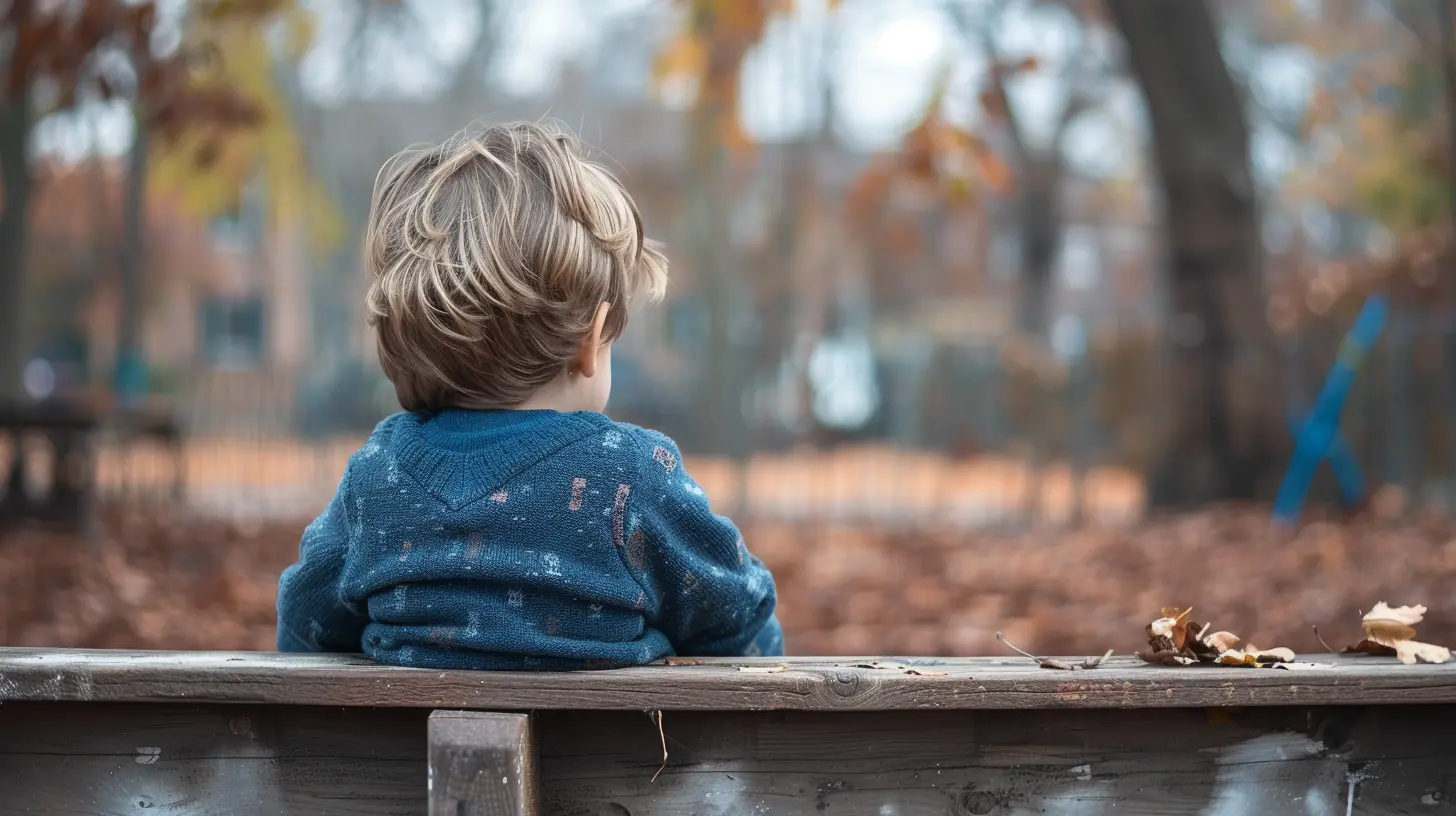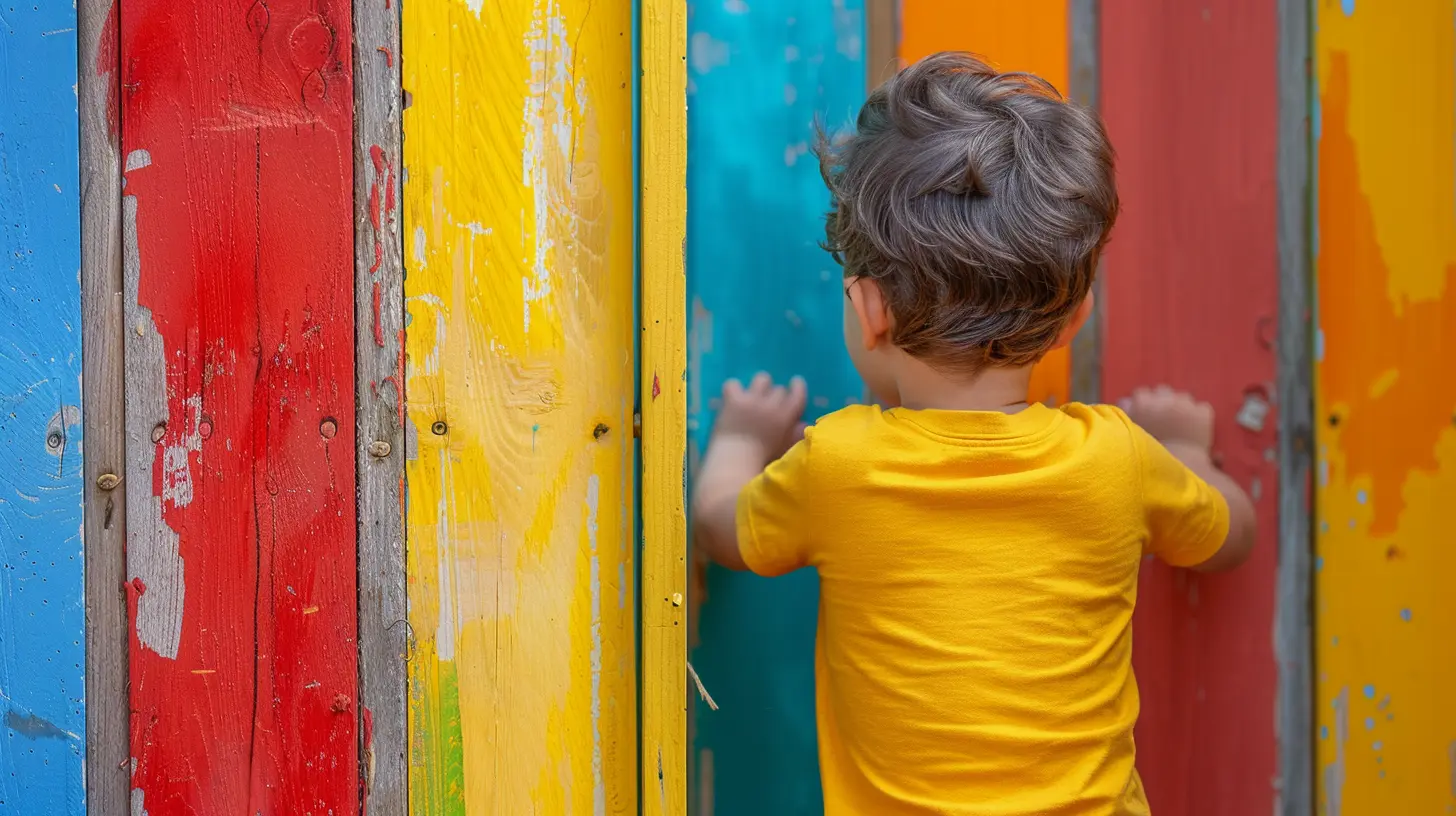Overcoming Preschool Fears: Ways to Help Your Child Feel Secure
6 November 2025
Starting preschool is a big milestone—not just for your little one, but for you, too. It’s exciting, emotional, and yes, sometimes downright scary. If your child starts clinging to your leg at drop-off or gets teary-eyed at the mention of school, believe me, you’re not alone. Almost every parent goes through this rollercoaster. And guess what? It’s totally normal.
So, how do you help your kid feel safe, confident, and comforted during this major transition? Let’s break it down together.
Why Preschool Can Feel Scary for Kids
Before we dive into tips and tricks, let’s take a step back and see things from your child’s point of view.Imagine being dropped off at a brand-new place filled with strangers, rules you don’t understand, and no clue what’s coming next. Sounds pretty overwhelming, right? That’s preschool for most kids.
Here are some common fears they might be juggling:
- Separation anxiety: The number one fear. They’re used to having you around 24/7, and now suddenly, you’re gone for hours.
- Fear of the unknown: New faces, routines, snacks, nap places—it’s a lot.
- Worry about making mistakes: What if they don’t know where to go, how to use the bathroom, or how to ask for help?
- Social fears: Will the other kids like them? Will they make friends?
Acknowledging these fears is the first step in helping your child feel safe.
Start with Connection, Not Correction
When your child resists going to preschool, it’s tempting to jump into “fix-it” mode. You might say things like, “There’s nothing to be afraid of!” or “You’ll be fine—just go and have fun!”While meant to be reassuring, these phrases can sometimes feel dismissive. Instead of jumping to solutions, take a breath and offer connection first.
Try saying:
- “I can see you’re feeling nervous. That’s okay.”
- “It’s hard to try new things, isn’t it?”
- “I’m here with you, and I’ll help you through this.”
By tuning into their emotions, you’re building trust. And trust is what helps kids feel secure enough to face their fears.
Talk About Preschool in a Positive (and Realistic) Light
Start prepping your child by talking about preschool long before the big day arrives. But don’t sugarcoat it. Kids are smart—they’ll see through sparkly promises if reality doesn’t match up.Instead, keep it upbeat and honest.
Talk about:
- The fun stuff: “They have a play kitchen like yours!” or “You’ll get to paint with big brushes!”
- The routine: Describe what drop-off, snack time, playtime, and pick-up will look like.
- Their feelings: Let them know it’s okay to feel nervous and excited at the same time.
When kids know what to expect, the fear of the unknown shrinks down to size.
Visit the Preschool Together
If possible, schedule a tour or “meet the teacher” session. Walk around the classroom, check out the playground, and let your little one explore at their own pace.Treat it like a casual playdate rather than an orientation. No pressure. Just time to get comfortable with the space and the people.
Got pictures of the classroom from your visit? Show them again and again at home. Familiarity breeds comfort.
Practice the Preschool Routine at Home
Kids thrive on predictability. So, why not do a little preschool “rehearsal” at home?- Wake up and get dressed at the same time each morning.
- Pack a pretend backpack (you can even throw in their favorite stuffed animal).
- Practice saying goodbye and doing a pick-up after an hour of solo play.
Even play-acting drop-off can help your child mentally prepare. It’s like a dress rehearsal for the real thing!
Create a Special Goodbye Ritual
Saying goodbye is often the hardest part. But turning it into something special can make it easier for both of you.Try:
- A secret handshake
- A silly rhyme or hug routine
- A quick kiss on the nose followed by “See you later, gator!”
Keep it consistent. And most importantly—keep it short. Long, drawn-out goodbyes tend to make the separation harder.
Send a Comfort Object
Some preschools allow kids to bring a “lovey,” small blanket, or even a photo of the family. Don’t underestimate the power of a familiar object.It's like giving them a little piece of home to carry in their pocket.
Even better? Slip a tiny note in their lunchbox (a smiley face or heart drawing works, too!). It’s a sweet reminder that you’re thinking of them.
Empower Them with Words
Sometimes, all a kid needs is the right sentence to feel brave. Teach simple, empowering phrases they can use:- “I can ask for help if I need it.”
- “It’s okay to feel nervous—my feelings are normal.”
- “Mom or Dad will come back after school.”
Repeat these often. Post them on the fridge. Say them together on the way to preschool. These phrases are like little courage-boosters in their mental toolbox.
Stay Calm and Consistent
This one’s a biggie. Your child looks to you for cues on how to feel. If you’re stressed, they’ll sense it. If you hesitate at drop-off, they’ll cling tighter.So do your best to stay calm and confident—even if your heart is breaking a little inside.
Trust the teachers. Trust the process. And trust your child. They’re stronger than you think.
Talk About the School Day Afterwards
After pick-up, give your child space to decompress before grilling them with questions like, “Did you make friends?” or “Was it fun?”Instead, try these gentle conversation starters during snack time or while driving:
- “What did you build in block corner today?”
- “What did you eat for snack?”
- “What was the silliest thing that happened at school?”
Let them share at their own pace. Some kids spill every detail. Others need time. Either way, just being present and curious builds connection.
Celebrate the Small Wins
Even if your child cried at drop-off, celebrate the fact that they stayed. Or that they painted a picture. Or that they said, “See you later” without tears.It’s all progress. It’s all worth cheering for.
You might start a sticker chart or a “courage jar” where they drop a bead each day they go to school. Over time, these visual reminders show them just how brave they’ve been.
Know When It’s More than Just Nerves
Most kids adjust to preschool within a few weeks. But if the anxiety gets worse over time, or starts affecting sleep, appetite, or behavior, it might be a sign they need extra support.Be open with the teacher. Ask how your child does during the day. Often, kids cry at drop-off but settle quickly once they’re inside. Hearing that can ease your own worries, too.
If needed, don’t hesitate to reach out to a pediatrician or child therapist. They can help sort through deeper fears and offer some tools.
You’re Doing Better Than You Think
At the end of the day, your love and support are what matter most. There’s no one-size-fits-all formula for helping kids through preschool jitters. But showing up, staying consistent, and tuning into their feelings—that’s the magic combo.Think of this stage as building your child’s emotional “security blanket.” One made not of fabric, but of trust, empathy, and tiny moments of courage.
And remember: this too shall pass. Before you know it, your once-nervous preschooler will be marching into the classroom with a backpack full of confidence.
Final Thoughts
Helping your child overcome preschool fears won’t happen overnight. But with patience, heart, and a sprinkle of creativity, you can guide them toward feeling safer and more secure.Preschool is just the first step in a life full of brave new beginnings. And guess what? You’re already leading the way like a pro.
all images in this post were generated using AI tools
Category:
Parenting PreschoolersAuthor:

Liam Huffman
Discussion
rate this article
1 comments
Poppy Lee
Fear not; confidence is contagious!
November 19, 2025 at 4:36 PM

Liam Huffman
Absolutely! Instilling confidence in ourselves helps our children feel more secure and brave in their own experiences.


